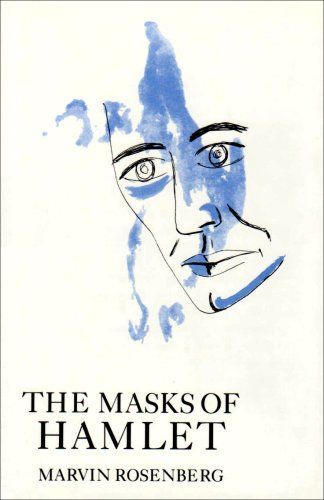
The Masks of Hamlet
Hamlet's challenge: "You would pluck out the heart of my mystery - " Yes, we would. If we could. We can but try; and the best way to begin, this book suggests, is to share what distinguished actors, scholars, and critics have gleaned; and thus enriched by their experience forage in the text and come to know the play personally, intimately. Again and again Mr. Rosenberg will insist that only the individual reader or actor can determine Shakespeare's design of Hamlet's character - and of the play. More, the reader, to interpret Hamlet's words and actions at the many crises, needs to double in the role of actor, imagining the character from the inside as well as observing it from the outside. So every reader is deputed by the author to be an actor-reader, invited to participate within Hamlet's mystery. The critical moments are examined, the options and ambiguities discussed, and the decisions left to individual judgment and intuition. The mysteries of other major characters are similarly approached. What terrible sin haunts Gertrude, that she never confesses? What agonies hide behind Claudius' smile? Does Ophelia truly love Hamlet? Does she choose madness? What are Polonius' masked motives, as in using his daughter for bait for Hamlet? With how much effort must Laertes repress the conscience that finally torments him? Only the actor-reader can know. And the mystery of the play itself: by what magic did Shakespeare interweave poetic language, character, and stage action to create a drama that for centuries has absorbed the attention and admiration of readers and theatre audiences on every continent in the world? The reader-actor will find out. To prepare the actor-reader for insights, Mr. Rosenberg draws on major interpretations of the play worldwide, in theatre and in criticism, wherever possible from the first known performances to the present day. He discusses evidences of Hamlet's experience in Armenia, Austria, Belgium, Bulgaria, Canada, China, Czechoslovakia, Denmark, Estonia, Finland, France, Germany, Greece, Holland, Hungary, India, Ireland, Israel, Italy, Japan, Korea, Norway, Poland, Romania, Russia, South Africa, South America, Sweden, Turkey, the United Kingdom, the United States, and Yugoslavia. Theatres from a number of these countries provided the author with videotapes of their Hamlet performances; his study of these, and of films and recordings, and of a number of modern stagings in America and abroad, deepened his sense of the play, as did interviews with actors and directors, and insights sent to him by colleagues and friends from throughout the world. Mr. Rosenberg followed one Hamlet production through rehearsals to performance, for personal experience of the staging of the play he discusses, as he did in his earlier books, The Masks of Othello, The Masks of King Lear, and The Masks of Macbeth . And as with the latter two studies, he came upon further illuminations of Shakespeare's art by exposing Hamlet to "naive" spectators who had never read or seen the play.